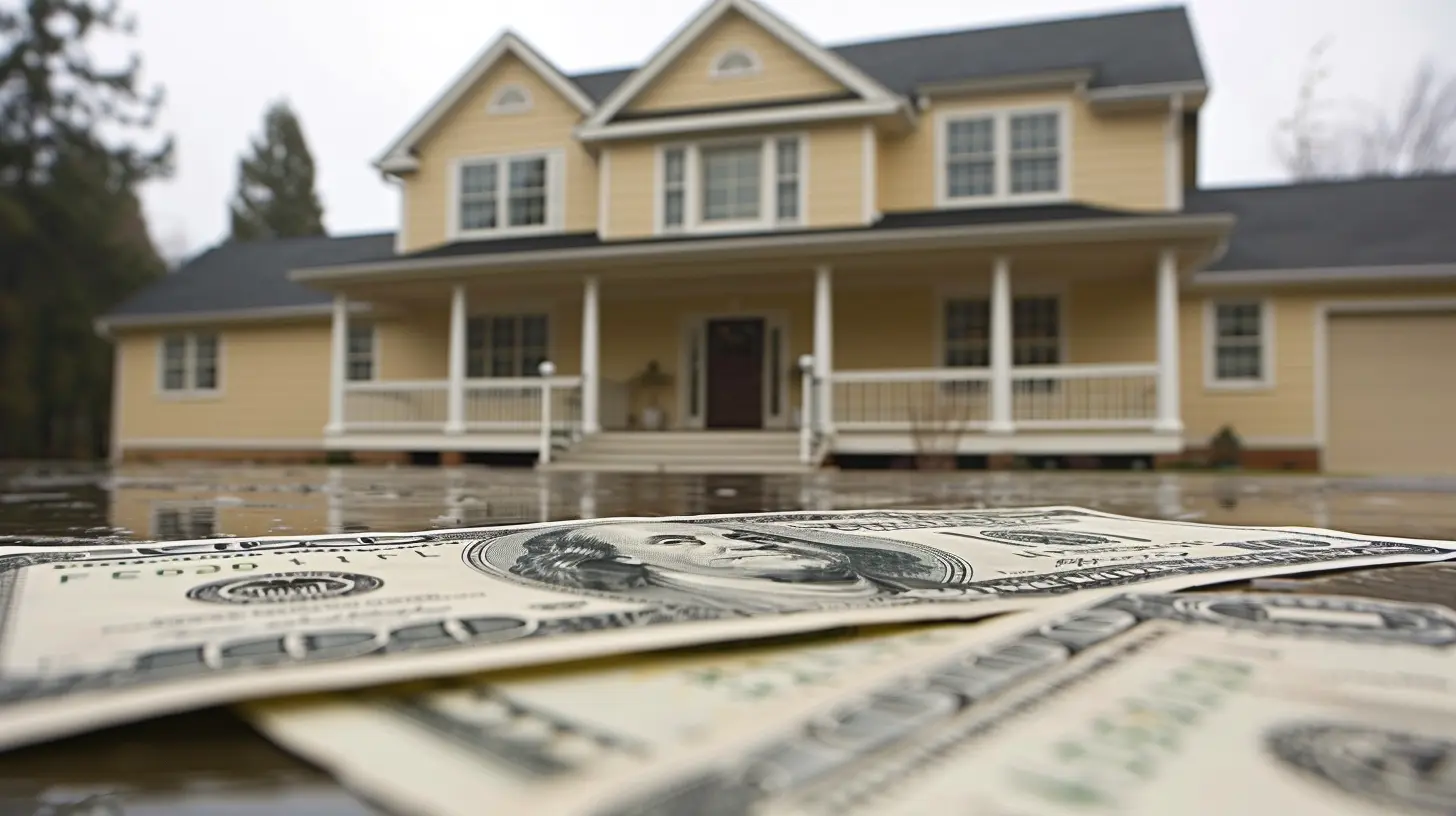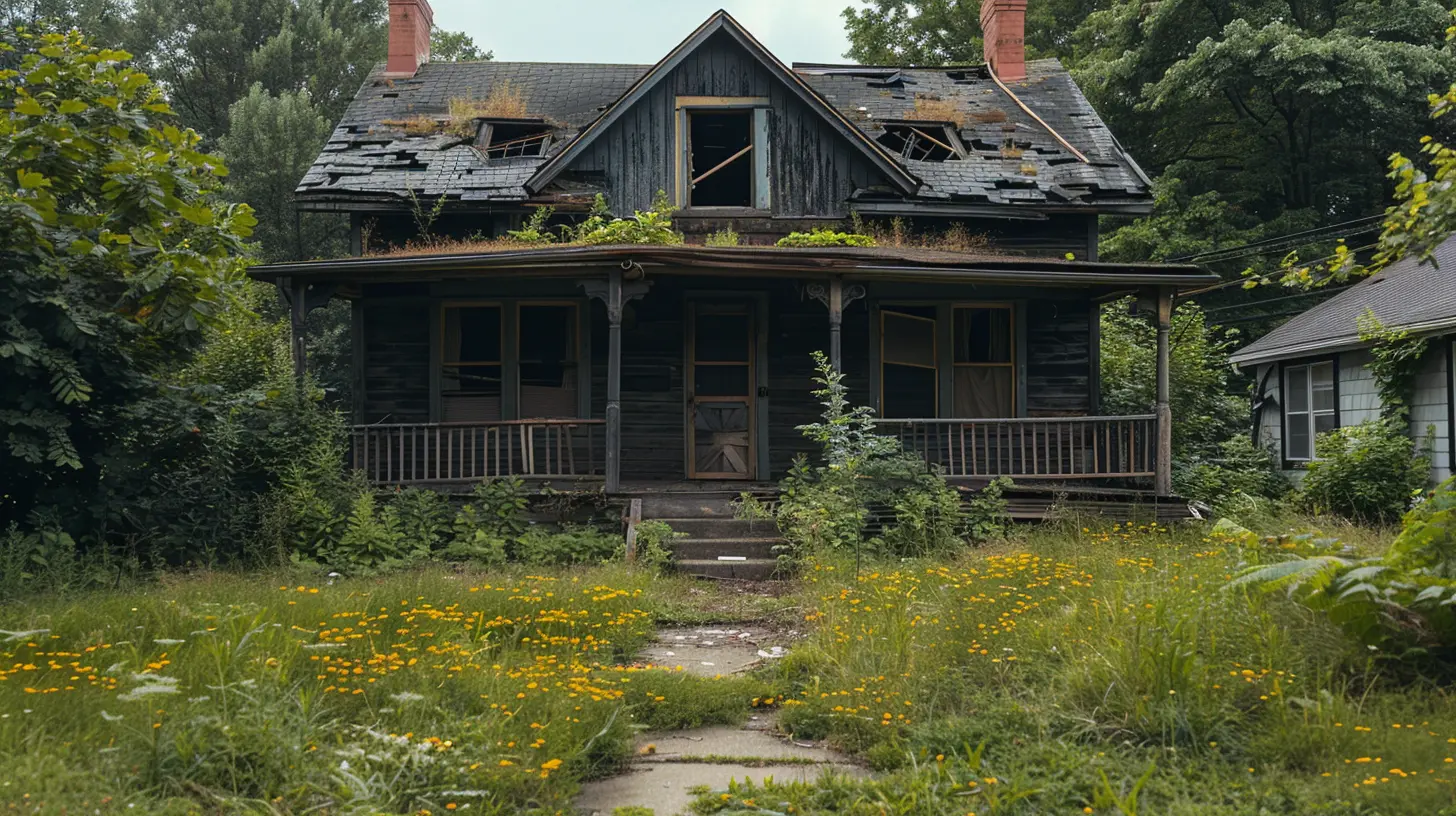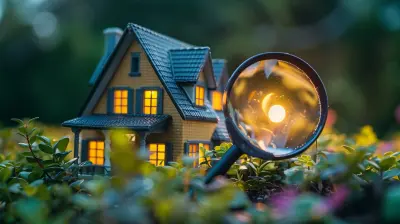Exploring Bank-Owned Property Auctions for Homebuyers
19 June 2025
So, you’re on the hunt for a new home, but those sky-high market prices are giving you sticker shock? I hear you. The real estate game can be brutal. But what if I told you there’s a way to snag a property at a bargain price without selling your soul? Enter bank-owned property auctions—the underrated treasure chest of the real estate world.
Yep, we’re talking about homes that have been foreclosed on and are now up for grabs at serious discounts. Intrigued? Buckle up, because we’re about to dive deep into the wild world of bank-owned property auctions and how you (yes, YOU) can find your dream home without spending a fortune. 
What Are Bank-Owned Property Auctions?
Let’s break this down. A bank-owned property, also known as an REO (Real Estate Owned) property, is a home that was seized by the bank after the previous owner defaulted on their mortgage. When homeowners fall behind on payments and foreclosure happens, the bank tries to sell the property at a foreclosure auction. If no one bites, the bank takes full ownership and lists it for sale—often at an auction.Why does this matter to you? Because banks aren’t in the business of hoarding homes. They want to sell these properties fast, which means you can score a home for way less than market value. Sounds like a win, right? It is—if you know how to navigate the process. 
The Pros of Buying a Bank-Owned Home at Auction
Alright, let’s talk perks. Why should you even consider bidding on a bank-owned property auction? Here are some gold-star reasons:💰 Lower Prices = Bigger Savings
Since banks are mainly looking to cut their losses, they price these homes below market value to attract buyers quickly. This means you could end up with a serious bargain—sometimes thousands (or even tens of thousands) below what similar homes sell for.🏠 Less Competition
Traditional homebuying can feel like a gladiator fight—bidding wars, emotional rollercoasters, and desperate buyers throwing in offers way over asking price. But bank-owned property auctions? Typically fewer buyers are in the ring, giving you better odds of winning without needing to outbid 20 other people.🚀 Fast-Track to Ownership
Unlike the painfully long process of traditional home sales, auctions tend to move quickly. If you win the bid and handle your payments on time, you could close on your home in weeks instead of months. Talk about skipping the drama!
The Cons You Should Know (Because, Yes, There Are Risks)
Now, before you rush off to start bidding, let’s pump the brakes. Bank-owned property auctions are not for the faint of heart. If you go in blindly, you could get burned. Here are some cons to keep in mind:🏚 Homes Sold "As-Is"
There’s no sugarcoating it—some of these homes are in rough shape. Since you’re buying "as-is," the bank isn’t about to make repairs or renovate the place for you. That means you should be prepared for potential fixer-upper situations.❓ Limited or No Inspection Access
Unlike traditional sales, where you get to snoop around, check for leaky pipes, and peek in every closet, bank-owned auctions rarely allow inspections before bidding. This is a huge gamble, as you might not know if there are hidden issues lurking beneath the surface.💵 Cash is (Usually) King
Many bank auctions prefer cash buyers or require you to have pre-approved financing before bidding. If you're not rolling in dough, you’ll need to make sure you have financing lined up in advance.
How to Find Bank-Owned Property Auctions
Sold on the idea? Awesome. Here’s how you can actually find these auctions:📍 Check Bank Websites
Major banks like Wells Fargo, Bank of America, and Chase often have dedicated sections on their websites listing REO properties.🌐 Browse Auction Websites
Platforms like Auction.com, Hubzu, and RealtyTrac specialize in listing bank-owned homes up for auction.🏛 Monitor County Foreclosure Sales
Local governments sometimes hold foreclosure auctions that include bank-owned properties. Check your county’s website or courthouse listings for upcoming sales.Bidding Like a Pro: Tips for Winning at a Bank-Owned Auction
Now, let’s get to the good stuff—how to actually win at one of these auctions without making rookie mistakes.💡 Do Your Homework
Before placing a bid, research the property’s market value, past ownership records, and any unpaid taxes or liens. You don’t want any ugly surprises after you’ve won.🚦 Set a Budget and Stick to It
Auction fever is real. The adrenaline kicks in, and suddenly you’re bidding way more than you planned. Don’t fall for it! Set a max bid and walk away if it goes beyond that.🏦 Secure Financing in Advance
Even if the auction accepts financing, most require a hefty deposit upfront, sometimes within 24 hours of winning. Make sure your funds are ready to go.🔍 Drive by the Property (If Possible)
Since full inspections aren’t usually an option, at least do a drive-by to check out the home’s exterior and get a feel for the neighborhood.📜 Read the Fine Print
Every auction house has its own rules. Some come with hidden fees, bidding deposits, or redemption periods where previous owners could reclaim the home. Always know what you’re signing up for.What Happens After You Win?
So, you placed the winning bid—congrats! Now what?1. Submit Payment/Deposit ASAP – Auctions typically require a deposit immediately, with the full payment due within a set time frame.
2. Sign the Paperwork – Expect contracts and documents outlining terms of the sale. Read everything before signing.
3. Take Ownership – Once the deal closes, you’ll get the deed and keys (assuming there are no last-minute legal hiccups).
4. Handle Repairs & Renovations – If the home needs work, now is the time to tackle it. Hopefully, you factored this into your budget!
Should You Buy a Bank-Owned Property at Auction?
So, is this the right move for you? If you’re looking for a great deal, willing to put in some extra effort, and can handle a bit of risk, bank-owned property auctions can be a goldmine.However, if you’re not comfortable with the idea of buying a home "as-is" or dealing with possible repairs, this route might not be your best bet. Either way, knowledge is power. The more you understand how these auctions work, the better positioned you’ll be to snag a killer deal.
So, ready to take the plunge? Your dream home (at a bargain price) just might be waiting!
all images in this post were generated using AI tools
Category:
Real Estate AuctionsAuthor:

Lydia Hodge
Discussion
rate this article
2 comments
Elara Thornton
Great insights, thank you!
September 21, 2025 at 2:58 AM

Lydia Hodge
Thank you for your kind words! I'm glad you found the insights helpful.
Deborah Morrow
Unlock hidden treasures in bank-owned auctions today!
June 20, 2025 at 5:04 AM

Lydia Hodge
Absolutely! Bank-owned auctions can offer unique opportunities for savvy homebuyers to find great deals.


